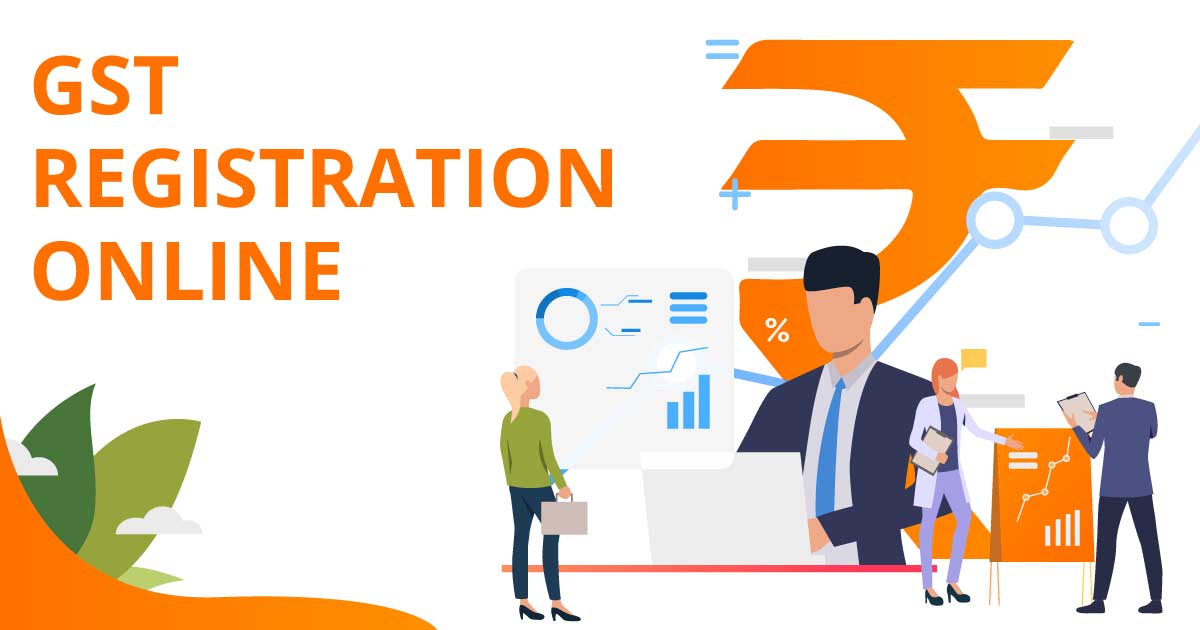Why Services Favor the most effective GST Registration Services in Singapore
Why Services Favor the most effective GST Registration Services in Singapore
Blog Article
From Beginning To End: The Ultimate Roadmap to GST Enrollment for Businesses Seeking Financial Security
Browsing the complexities of Goods and Solutions Tax Obligation (GST) enrollment is a crucial step for organizations aiming for monetary security. From understanding the essential concepts of GST to abiding by post-registration guidelines, the procedure can appear discouraging in the beginning glimpse. Nonetheless, damaging down the roadmap right into manageable steps can improve the enrollment trip for organizations wanting to improve their economic standing. Allow's explore the crucial parts that make up this supreme roadmap and find just how each phase contributes to laying a strong structure for economic success.
Recognizing GST Basics
Delving into the basic concepts of Goods and Solutions Tax Obligation (GST) is crucial for acquiring a detailed understanding of its effects on businesses and the economic climate. Input Tax Credit Rating (ITC) is a considerable function of GST, permitting organizations to claim credit history for tax obligations paid on inputs, lowering the overall tax concern. Understanding the fundamentals of GST is important for services to abide with tax obligation guidelines, handle their funds successfully, and add to the country's economic growth by taking part in a transparent tax system.
Eligibility Criteria for Registration
To sign up for GST, organizations have to fulfill details qualification standards established by the federal government. The primary eligibility requirement is that any kind of company associated with the supply of items or solutions with a yearly accumulation turnover above the threshold restriction established by the authorities need to register for GST. As of the present policies, the threshold limit for GST registration is a yearly aggregate turnover of 40 lakhs for businesses running within a state, besides unique classification states where the limit is 20 lakhs. In addition, specific companies are required to sign up for GST irrespective of their turn over, such as interstate distributors, laid-back taxable individuals, and companies liable to pay tax obligation under the reverse cost device. It is critical for services to completely assess their turn over and deal types to establish their GST enrollment responsibilities properly. Failing to sign up for GST when eligible can bring about penalties and lawful effects, making it important for companies to comply with the defined eligibility requirements.
Files Required for Enrollment
Having fulfilled the qualification standards for GST enrollment, companies have to currently ensure they have the requisite records in location to wage the registration procedure effectively. The records needed for GST enrollment commonly consist of proof of service constitution, such as partnership act, registration certification, or consolidation informative post certification for various kinds of organizations. Furthermore, organizations require to offer papers establishing the principal business, such as a rental arrangement or electricity bill. PAN card of the service, as well as the identity and address proof of promoters/partners/directors, are vital for confirmation purposes. Savings account statements, along with terminated cheques or a copy of the financial institution passbook, are needed to verify the monetary details offered during registration. Organizations have to have electronic trademarks prepared for the authorized signatory. Making certain all these papers are organized and readily available will certainly accelerate the GST enrollment procedure, enabling organizations to comply with tax obligation regulations perfectly.
Step-by-Step Registration Process
Starting the GST enrollment process entails a series of structured steps to make certain a certified and seamless enrollment for companies. The initial step is to check out the GST website and fill in the enrollment form with exact information of the organization entity. Following this, the applicant gets a Short-lived Reference Number (TRN) which is used to return to the application procedure if it's not finished in one go.
Following, all called for documents as per the checklist supplied by the GST portal need to be submitted. These documents typically include proof of business identity, registration and address evidence of marketers, monetary statements, and service entity's PAN card.

Post-Registration Conformity Standards

Verdict
In conclusion, businesses seeking monetary stability must recognize the fundamentals of GST, satisfy eligibility standards, collect needed documents, comply with the step-by-step registration procedure, and abide with post-registration standards - Best GST registration services in Singapore. By adhering to these actions, businesses can make certain compliance with tax obligation laws and keep financial stability in the lengthy run
In addition, particular businesses are needed to register for GST irrespective of their turnover, such as interstate distributors, casual taxed individuals, and organizations accountable to pay tax Read Full Report under the reverse fee system.Having satisfied the eligibility standards for GST enrollment, businesses should now ensure they have the requisite documents in location to continue with the registration process effectively. The records required for GST registration generally include evidence of service constitution, such as collaboration action, enrollment certificate, or unification certificate for various types of services. In addition, businesses require to give records developing the major area of service, such as a rental arrangement or electricity costs.Starting the GST enrollment process involves a collection of structured actions to make sure a seamless and compliant enrollment for companies.
Report this page